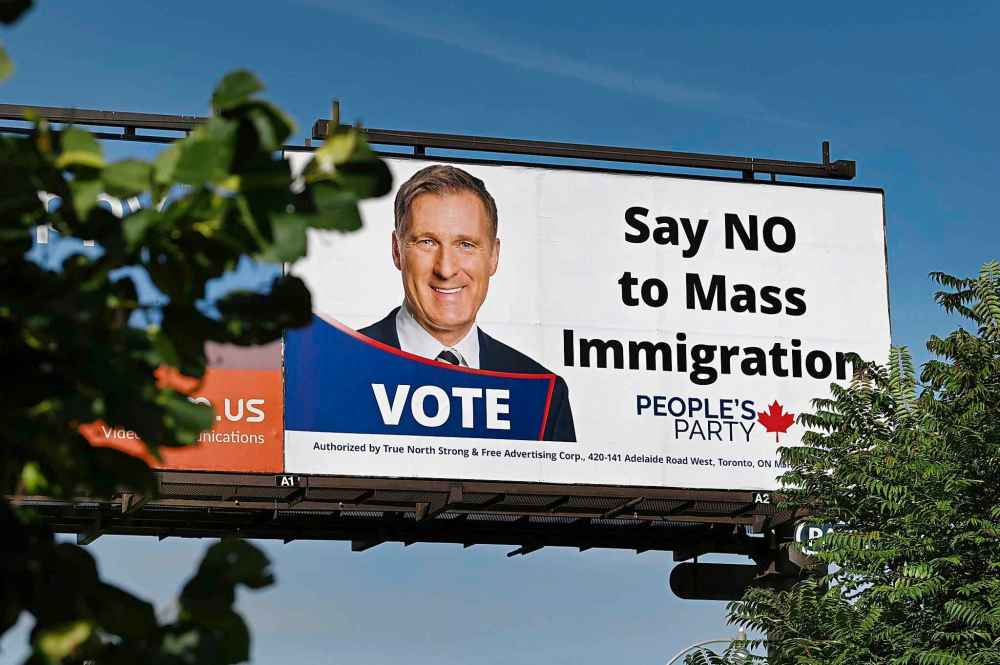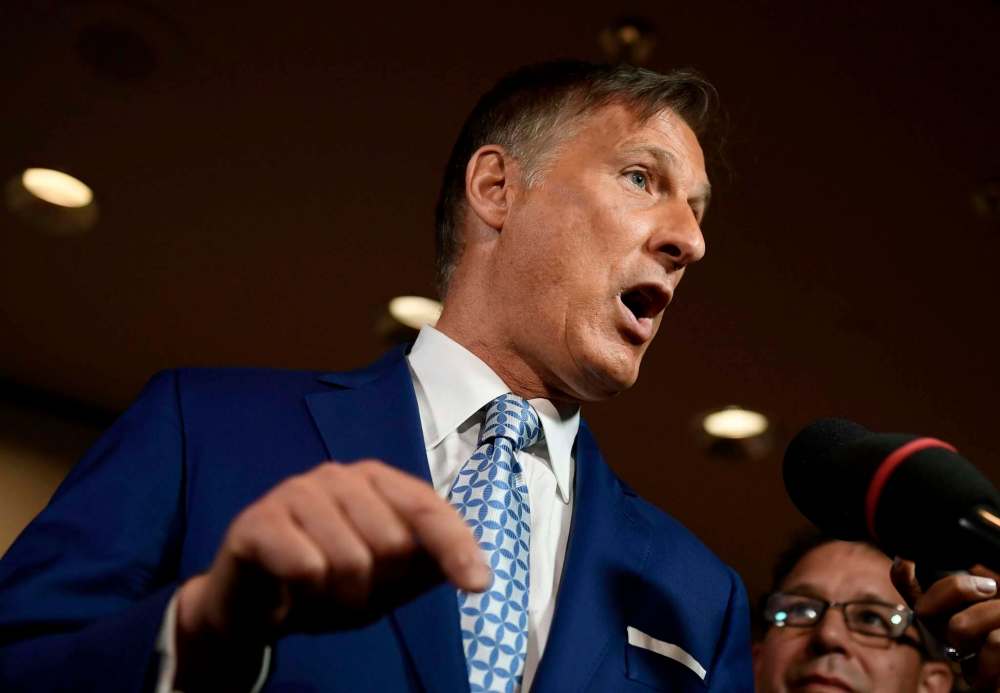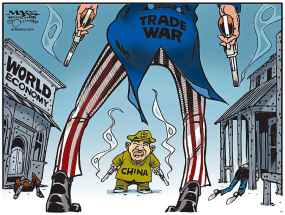Billboard controversy just what Bernier wanted
Read this article for free:
or
Already have an account? Log in here »
To continue reading, please subscribe:
Monthly Digital Subscription
$0 for the first 4 weeks*
- Enjoy unlimited reading on winnipegfreepress.com
- Read the E-Edition, our digital replica newspaper
- Access News Break, our award-winning app
- Play interactive puzzles
*No charge for 4 weeks then price increases to the regular rate of $19.00 plus GST every four weeks. Offer available to new and qualified returning subscribers only. Cancel any time.
Monthly Digital Subscription
$4.75/week*
- Enjoy unlimited reading on winnipegfreepress.com
- Read the E-Edition, our digital replica newspaper
- Access News Break, our award-winning app
- Play interactive puzzles
*Billed as $19 plus GST every four weeks. Cancel any time.
To continue reading, please subscribe:
Add Free Press access to your Brandon Sun subscription for only an additional
$1 for the first 4 weeks*
*Your next subscription payment will increase by $1.00 and you will be charged $16.99 plus GST for four weeks. After four weeks, your payment will increase to $23.99 plus GST every four weeks.
Read unlimited articles for free today:
or
Already have an account? Log in here »
Hey there, time traveller!
This article was published 28/08/2019 (2295 days ago), so information in it may no longer be current.
The first thing that needs to be acknowledged is that all the media coverage to date of the controversy surrounding the People’s Party of Canada’s anti-immigration billboards — up to and including the writing of this editorial — has given party leader Maxime Bernier everything, and a whole lot more, than he ever could have hoped.
Attention, controversy, the opportunity to portray himself as an aggrieved party rather than the purveyor of noxious politics, and several news cycles’ worth of “earned media” that disseminated his divisive message at no additional cost — all of these things have come Mr. Bernier’s way as a result of the placement, and subsequent removal, in various Canadian cities of billboards featuring his smiling image alongside the directly stated message “Say NO to Mass Immigration.”
Never mind that Canada doesn’t have any such thing as mass immigration, an inconvenient fact that effectively reduces the billboard slogan to a five-word expression of irrelevant nonsense.

The point of the third-party ads, placed by a Toronto-based outfit that calls itself True North Strong & Free Advertising Corp., was to reinforce the PPC’s anti-immigrant message for the sliver of the Canadian population (less than three per cent, according to recent polling) that supports it, and to afford Mr. Bernier a moment of national exposure that far exceeds what his almost-negligible standing merits.
In a macro sense, the debate over whether Mr. Bernier’s grinning visage on a billboard, alongside a statement that encapsulates a broader toxic view, should be placed in plain sight is an interesting and perhaps-worthwhile conversation, because it forces Canadians to confront how much they expect to be protected from on a daily basis in the current age of instantly hurt feelings and chronic overreactional outrage.
Given that the messaging in question was originally limited to a handful of sign locations on high-traffic routes in selected Canadian cities, it’s safe to say that the actual number of bruised sensibilities the PPC-supporting billboards could have created is relatively tiny, as is the number of anti-immigration enthusiasts who might have been emboldened by first-hand exposure to the oversized slogan.
What was needed, and what was clearly expected by those who put the billboards in place, was a spinoff controversy that would morph the low-budget outdoor ad buy into a full-blown national campaign.

On that count, the PPC’s billboard gambit must be counted as a resounding success. By rightly assuming that easily offended parties are not hard to find these days, the company responsible for the ads — which, along with the billboards’ owner, Pattison Outdoor Advertising, scrambled to distance itself from the message at the first whiff of controversy — set the stage for a big-impact message by putting up the billboard ads, and then cashed in on the publicity windfall by taking them down.
For his part, Mr. Bernier reacted precisely on cue, playing the victim by tweeting about how he was being censored by a “totalitarian leftist mob.” As has been the case with everything else he has said since sending the PPC banner aloft, the vast majority of Canadians completely ignored his latest fey complaint.
Still, there were probably high-fives exchanged around boardroom tables over the manner in which a minimal-effort billboard campaign had been leveraged into a massive moment of national exposure.
And who knows? A few more strokes of marketing genius like this one, and Mr. Bernier and the PPC might suddenly find themselves polling in the upper reaches of the lower single digits.










